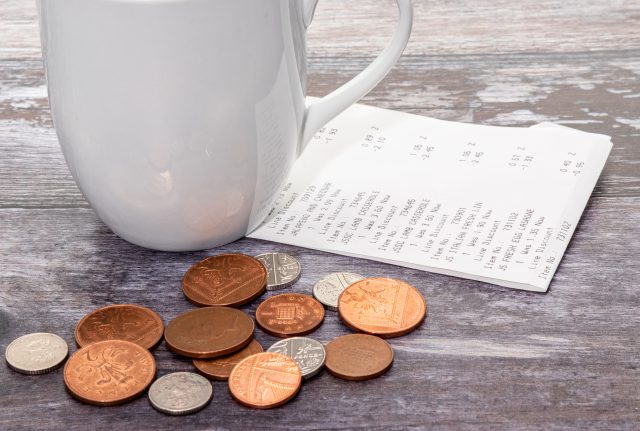This website uses cookies so that we can provide you with the best user experience possible. Cookie information is stored in your browser and performs functions such as recognising you when you return to our website and helping our team to understand which sections of the website you find most interesting and useful.
How stingy are Brits when it comes to tipping?
The vast majority of British people would not pay a 20% tip at a restaurant, but younger diners are significantly more generous than older ones, according to a recent study.

Last year, London-born Balthazar restaurateur Keith McNally, who owns restaurants on both sides of the Atlantic, moaned that British people were terrible tippers, “especially if they’re middle or upper class”.
Recent research from card payment provider Dojo reveals that, certainly compared to Americans, British people don’t tend to splash the cash when tipping.
Of the 2,000 people surveyed, almost a quarter (24%) said that they would prefer not to tip at all and 42% were in favour of abandoning the 10-12.5% service charge that many restaurants impose. Only 3% voiced support for a US-style system where a 20-25% tip would be paid at the end of the meal.
However, while McNally suggested the key divide in how much customers will fork out is social class, the data shows that the real dividing line is age.
Dojo’s survey shows that for the 18-24-year-old bracket, the average amount tipped for a £100 bill was £18.24. In spite of this figure, the survey found that only 8% of Generation Z respondents were in favour of the US system (still the demographic to show the strongest support for it).
By contrast, 25-34-year-olds, perhaps due to more of them living independently and therefore having less disposable income, would tip almost half the amount of the age group beneath them – paying an extra £9.26 on top of a £100 bill. 35-44-year-olds would pay even less, tipping £6.52 on average, while the demographic that is tightest with its purse strings is the 55-64 cohort, who would only give an average tip of 5% (£5.01). The 65+ demographic is similarly opposed to big tips, paying £5.11 extra on average.
What isn’t clear is exactly why this age trend is the case. One possible factor is that younger people are more likely to have recently worked in hospitality than older people, and therefore they are more appreciative of the challenges that come with the job and are therefore, it might be suggested, willing to pay more for service.
It should be noted that the Dojo data contradicts reports about how Gen Z members in the US are actually less likely to tip generously.
Of course, the reason why tipping is so important in the US is because of the relatively low wages that hospitality workers receive.
This is a stark contrast to Europe. For example, in Italy tipping is not especially common, but a small cover charge/coperto of a few Euros is often added to the bill. This cultural divide can lead to misunderstandings, especially between US servers and European customers, as a Twitter meltdown last summer demonstrated.
However, given the generational trends, perhaps the UK might eventually embrace an Americanised system, while the US opts for a more European approach, though it may be some time before this happens.
But the US-style system is not without its pitfalls. In 2022, one diner in Pennsylvania sued a customer who gave a US$3,000 tip and then, months later, asked for the money back.

